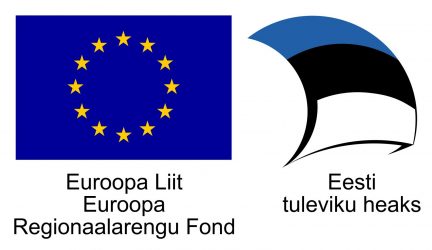Estonian Doctoral School
The Estonian Doctoral School brings together doctoral students and their supervisors from all Estonian universities. Its events enable doctoral students to establish scientific contacts in their fields of specialisation and international cooperation, to gain interdisciplinary knowledge and to develop their general skills. In addition, doctoral students can apply for a short-term mobility grant. A separate series of events supports the activities of supervisors. In addition, the doctoral school supports the involvement of experts from Estonian and international universities and other evaluated research and development institutions in the co-supervision, mentoring and advising roles for doctoral students.
The project is implemented by the University of Tartu, with the Estonian Academy of Arts, Estonian University of Life Sciences, Estonian Academy of Music and Theatre, Estonian Business School, Tallinn University of Technology and Tallinn University as partners. The doctoral school is led by the universities’ vice rectors for research.
EKA belongs to two specialised sections:
Humanities and arts, lead partner: Tallinn University, partners: University of Tartu, Estonian Academy of Arts, Estonian Academy of Music and Theatre
Engineering and technology, lead partner: Tallinn University of Technology, partners: University of Tartu, Estonian Academy of Arts, Estonian University of Life Science)

7–12 April 2025, Intensive course "Heritage Studies and Decolonial Thought"
Guest lecturer: Victoria Donovan, Professor of Ukrainian and East European Studies, University of St Andrews
Target group: PhD and MA students of Estonian Doctoral School for Humanities and Arts
Volume: 3 ECTS
Register HERE (deadline 28.02)
This intensive one-week course will introduce students to new thinking in critical heritage studies with a focus on decolonial methods and practice. Engaging with literature on topics such as power and positionality, critical care for dissonant and difficult heritage, reparative methods, and responding to silence and erasure, students will broaden their understanding of the intersection between colonialism, (de)coloniality, heritage and identity politics. Thinking with scholars discussed in the morning seminars, we’ll visit local heritage sites in the afternoons where we will discuss further in context. Assessment will be by oral presentation during which students will present their own work in dialogue with thinkers discussed in class. Presentations will take place at the end of each morning session except the first one.
Program (and reading materials)
Graduate School of Culture Studies and Arts (GSCSA)
Since 2009 Estonian Academy of Arts has been a member of the Graduate School of Culture Studies and Arts (GSCSA), a joint venture involving four universities (University of Tartu, Tallinn University, Estonian Academy of Music and Theatre and Estonian Academy of Arts).
From 2016, the Graduate School of Culture Studies and Arts will be coordinated by Tallinn University.
GSCSA was established to advance the academic level of PhD programmes of culture studies and arts in Estonia, and to integrate institutionally and administratively separated reseachers of culture.
Between 2016 and 2022 the graduate schools will follow the Institutional Development Programme for Research and Development and Higher Education Institutions (ASTRA).
At the Estonian Academy of Arts, the graduate school is financed by the ASTRA project EKA Loovkärg, which is supported by the (European Union) European Regional Development Fund.
GSCSA web-page: ktkdk.edu.ee

